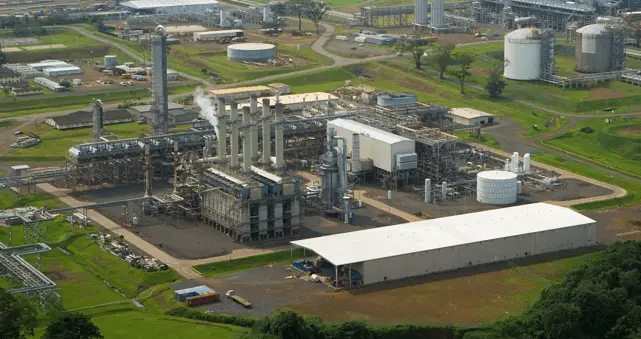- Nigerian National Petroleum Corporation (NNPC) and its joint venture partners will gain monetary value from gas that would have been stranded offshore
- The Africa Energy Chamber has backed the MoU calling for the rapid implementation of the deal
- Nj Ayuk, the Executive Chair of the Africa Energy Chamber, said that the agreement will position West Africa as a global gas hub
Liquefied Natural Gas (LNG) is the new gold, especially with what is happening in Ukraine following Russia’s invasion.
As it is, “The world needs gas, and Africa can supply it.” This is according to Nj Ayuk, the Executive Chair of the Africa Energy Chamber (AEC). The journey for Africa is just beginning with Nigeria signing an MoU on processing LNG for export at facilities in Equatorial Guinea.
Nigerian Minister for Petroleum Resources, Timipre Sylva, signed the agreement with Gabriel Mbaga Obiang Lima, Minister of Mines and Hydrocarbons of Equatorial Guinea. The two ministers were attending the Nigeria International Energy Summit 2022.
A statement from the Nigerian ministry says that the Memondarum of Understanding was in line with Nigeria’s “decade of gas” plan. Timpire also linked the MoU to the passage of the Petroleum Industry Act (PIA).
President Buhari launched the “decade of gas” initiative to ensure Africa’s biggest oil producer can take advantage of the global energy transition.
Read: Nigeria splashes US$195 million to power up the energy sector
Ayuk encouraged Nigeria and Equatorial Guinea to sign agreements with oil and gas investors Sonagas, Marathon and Chevron.
“Nigeria has huge gas resources, a significant amount of which is offshore and will require unprecedented investment in infrastructure to bring them to market,” Sylva said. “This collaboration allows much of that stranded gas to access the global gas market within 18 to 24 months in what will be the fastest timeline to market for a Nigerian offshore gas asset.”
The Nigerian Minister also praised Equatorial Guinea, saying that the Western African country has a massive record of world-class gas processing and liquefaction infrastructure already in Punta Europa and allocating investment funds for development.
Minister Obiang Lima said that Equatorial Guinea was in line to be an essential player in the African energy market.
“New, fast, and competitive sources will be a major determinant of success,” he said. “This strategic collaboration breaks down geographical boundaries and allows gas delivery from Nigeria to Equatorial Guinea’s Punta Europa facilities, extending their life and providing access to the regional and global energy markets.”
Through the agreement, the Nigerian National Petroleum Corporation (NNPC) and its joint venture partners will put into monetary use gas that would have otherwise been stranded offshore due to the absence of infrastructure.
Read: Africa pursuing energy banking as investors withdraw fossil fuels funding.
Equatorial Guinea establishes a Gas Mega Hub (GMH) plan to process domestic and international resources. Several developments have been outlined in the GMH plan.
- A cross-border development with Cameroon of the Yoyo-Yolanda condensate gas field.
- Creation of an intra-African Liquefied Natural Gas.
- Together with Noble Energy, the government has established a US$330 million Alen gas monetization project. The project was completed in January 2021.
- Resumption of work on an abandoned floating LNG (FLNG) project.
- The government of Equatorial Guinea plans to work with a US-based firm, using world-class technology to produce low carbon Liquefied Natural Gas.
While talking to the African Energy Chamber in February, Obiang Lima said Equatorial Guinea was aiming to sign up “non-committed gas”. He said the aim of the GMH is not to challenge Nigeria LNG (NLNG).
“The beauty of the gas mega-hub is that when you send your gas, it is transformed into LNG so you can get the amount you need for power, but if you don’t need it for the power, you can take for private investors and make money from it. The owners of the gas are always being paid,” Obiang Lima said.
Despite the conclusion of COP26 to halt oil and gas extraction to save the environment, West African countries are revamping their potential to produce these fuels as they pose the possibility to bring economic sustainability to the region.
Read: Equatorial Guinea confirmed as diamonds sponsor at African Energy Week.
